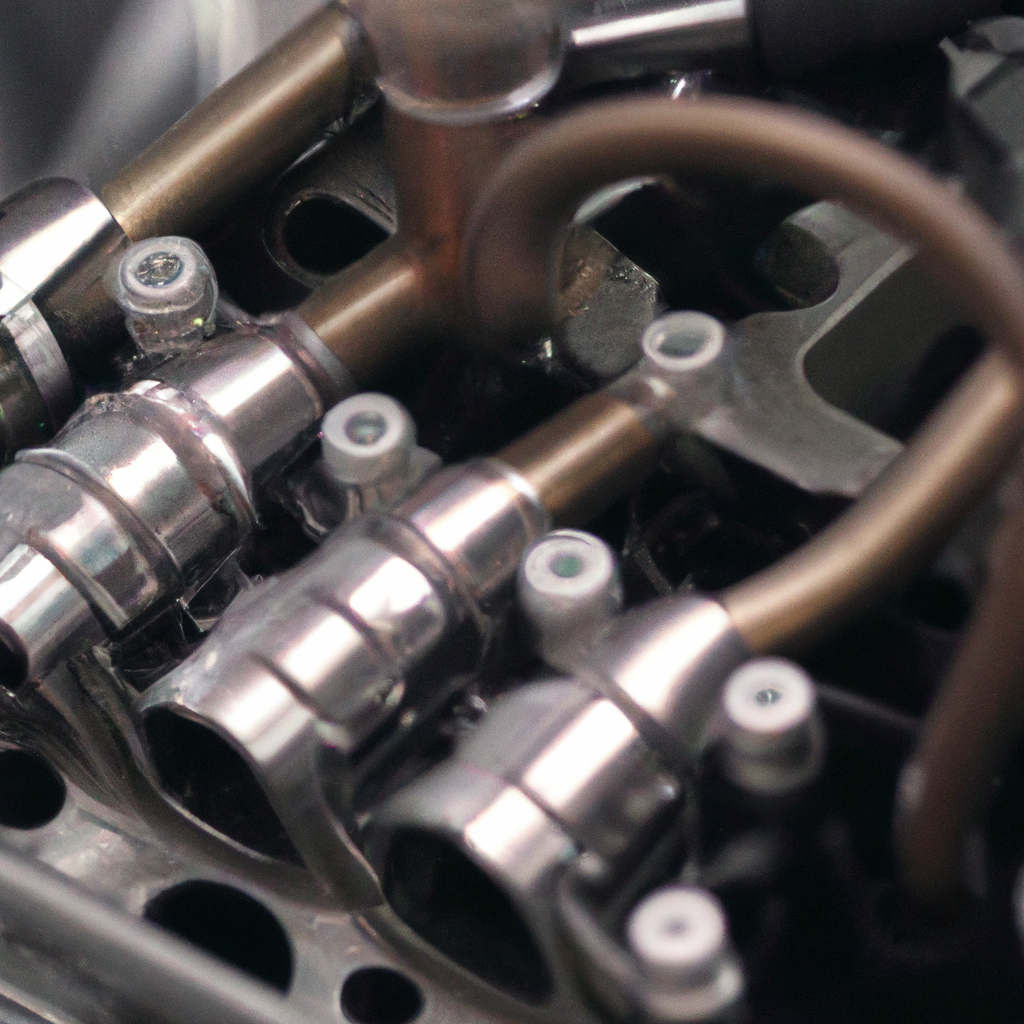A car’s fuel injection system is responsible for delivering fuel to the engine. It is a complex system that has evolved over time to become more efficient and effective. In this article, we will explore how a car’s fuel injection system works, the different types of fuel injection systems, and how to maintain and repair the system.
How Does Fuel Injection Work?
Fuel injection is a system that delivers fuel to the engine using a series of components. The components of a fuel injection system include:
- Fuel tank
- Fuel pump
- Fuel filter
- Fuel injectors
- Engine control module (ECM)
- Throttle body
The fuel tank stores fuel, which is pumped to the engine by the fuel pump. The fuel filter removes any impurities from the fuel before it reaches the fuel injectors. The fuel injectors then deliver fuel to the engine in a fine mist, which is ignited by a spark plug.
The engine control module (ECM) is the brain of the fuel injection system. It receives information from various sensors, including the oxygen sensor, throttle position sensor, and coolant temperature sensor, to determine the correct amount of fuel to deliver to the engine. The throttle body controls the amount of air that enters the engine, which is also taken into consideration when the ECM calculates the amount of fuel to deliver.
Fuel Injection System Explained
There are two main types of fuel injection systems: port fuel injection (PFI) and direct fuel injection (DFI).
Port Fuel Injection
In a PFI system, fuel is delivered to the engine through a series of injectors located near the intake valves. The injectors spray fuel into the intake manifold, where it mixes with air before entering the engine. PFI systems are known for their reliability and ease of maintenance.
Direct Fuel Injection
In a DFI system, fuel is injected directly into the combustion chamber, bypassing the intake manifold. This results in better fuel efficiency and more power, but DFI systems are more complex and expensive to maintain and repair.
Fuel Injection vs Carburetor
Before fuel injection systems were developed, carburetors were used to deliver fuel to the engine. Carburetors work by mixing fuel with air in a single chamber, which is then sent to the engine. However, carburetors are less efficient than fuel injection systems because they do not provide precise control over the amount of fuel delivered to the engine. Fuel injection systems are also better at reducing emissions, making them the preferred choice for modern cars.
Fuel Injector Cleaning
Over time, fuel injectors can become clogged with dirt and debris, which can cause them to malfunction. To prevent this, it is recommended to use a fuel system cleaner periodically to keep the fuel injectors clean. There are also fuel injector cleaning services available that use specialized equipment to clean the injectors more thoroughly.
Fuel Injection Service Cost
The cost of a fuel injection service varies depending on the make and model of your car, as well as the type of fuel injection system you have. On average, a fuel injection service can cost anywhere from $50 to $200.
Best Fuel Injector Cleaner
There are many fuel injector cleaners available on the market, but not all of them are created equal. Some of the best fuel injector cleaners include:
- Sea Foam Motor Treatment
- Chevron Techron Concentrate Plus Fuel System Cleaner
- Lucas Oil Deep Clean Fuel System Cleaner
Fuel Injection Pump
The fuel injection pump is responsible for pressurizing the fuel and delivering it to the fuel injectors. It is a crucial component of the fuel injection system, and if it fails, the engine will not receive fuel. Fuel injection pumps can be expensive to replace, so it is important to maintain them properly.
Fuel System Cleaning
In addition to cleaning the fuel injectors, it is also important to clean the entire fuel system periodically. This includes the fuel tank, fuel lines, and fuel filter. A fuel system cleaning service can help remove any deposits or debris that may be hindering the performance of your fuel injection system.
Fuel Injection Cleaning Service Cost
The cost of a fuel injection cleaning service varies depending on the service provider and the extent of the cleaning needed. On average, a fuel injection cleaning service can cost anywhere from $100 to $400.
Fuel Injection Repair
If your fuel injection system is not functioning properly, it may need to be repaired. Common fuel injection system problems include clogged fuel injectors, a faulty fuel pump, or a malfunctioning ECM. The cost of fuel injection repair depends on the extent of the damage and the parts that need to be replaced. On average, fuel injection repair can cost anywhere from $500 to $1500.
In conclusion, a car’s fuel injection system is a complex system that is responsible for delivering fuel to the engine. There are two main types of fuel injection systems, PFI and DFI, each with its own advantages and disadvantages. It is important to maintain and clean your fuel injection system regularly to ensure it functions properly and efficiently. If you suspect that your fuel injection system is not functioning properly, it is important to have it inspected and repaired by a professional.







